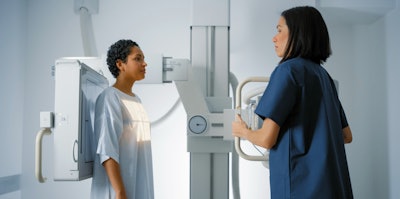
A nationwide study conducted by American Cancer Society researchers found that millions of Americans continued to miss critical cancer screening tests during the second year of the COVID-19 pandemic. The research, published February 23 in the Journal of Clinical Oncology, indicates that the ongoing COVID-19 pandemic is having a detrimental effect on cancer screenings.
The COVID-19 pandemic disrupted the delivery and receipt of many routine preventive services, including important cancer screenings that might help prevent and catch cancer at its earliest stages, when it is often easiest to treat.
“We can’t stress enough the importance of returning to screening,” senior author Dr. Ahmedin Jemal of the American Cancer Society said in a statement. “We need to continue health system and national cancer screening campaigns and focus our efforts toward people of color and lower socioeconomic standing to improve access to life-saving screenings.”
Researchers analyzed data from the 2019 and 2021 National Health Interview Survey. They examined information on screening for breast cancer among women 50 to 74 years old; cervical cancer among women 21 to 65 years old without a hysterectomy; prostate cancer among men 55 to 69 years old; and colorectal cancer among men and women 50 to 75 years old.
The number of women who reported having cervical cancer screening dropped by 4.4 million in 2021 compared with 2019 levels. The study also showed 1.1 million fewer women received breast cancer screening, while nearly 700,000 thousand fewer men reported having prostate cancer screening tests. Percentagewise, the findings showed past-year screenings in the U.S. had decreased from 59.9% to 57.1% for breast cancer, from 45.3% to 39.0% for cervical cancer, and from 39.5% to 36.3% for prostate cancer. Declines in breast, cervical, and prostate cancer screening were most notable among Asian individuals.
Colorectal cancer screening rates remained unchanged because an increase in past-year home-based stool testing (from 7.0% to 10.3%) offset a decline in colonoscopies (from 15.5% to 13.8%). The increase in stool testing was most pronounced in Black and Hispanic populations and persons with lower socioeconomic status, potentially reducing racial and socioeconomic disparities in colorectal cancer screening. The increase in stool testing emphasized the role of home-based screening during healthcare system disruptions. However, researchers note that in order to be effective, increased stool testing also requires increased follow-up colonoscopies for positive tests.
The researchers concluded that past-year screening prevalence for breast, cervical, and prostate cancer among age-eligible adults in the U.S. continued to be lower than pre-pandemic levels in the COVID-19 pandemic’s second year, reinforcing the importance of screening health system outreach and media campaigns. The American Cancer Society continues to promote its “Get Screened” campaign to encourage people to schedule regular cancer screening tests.



















